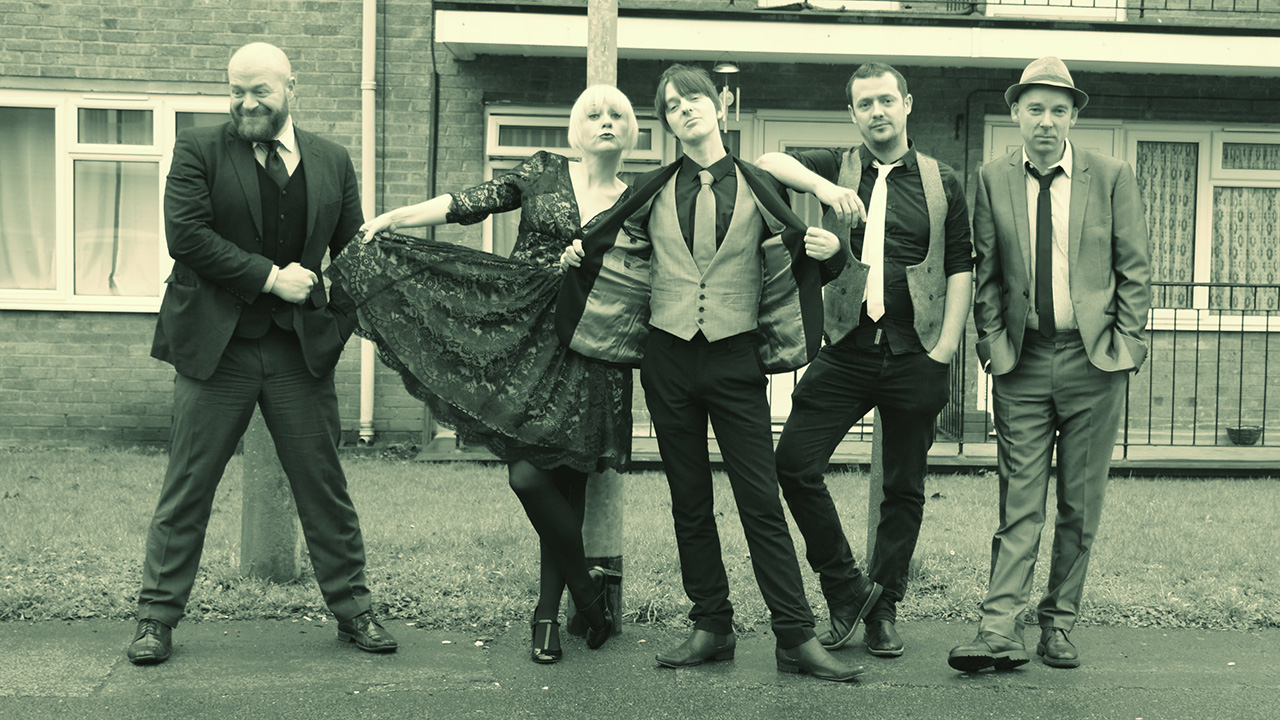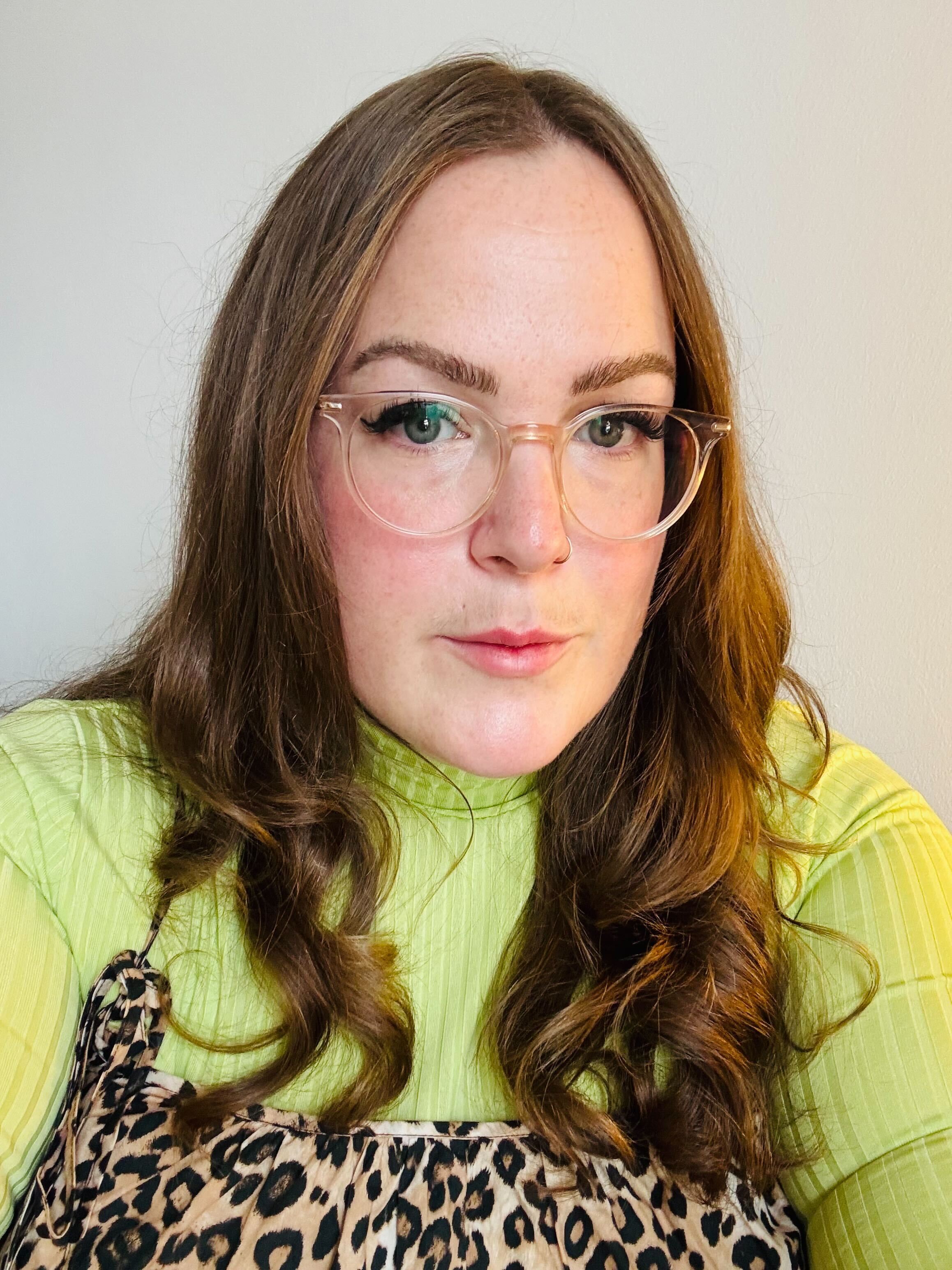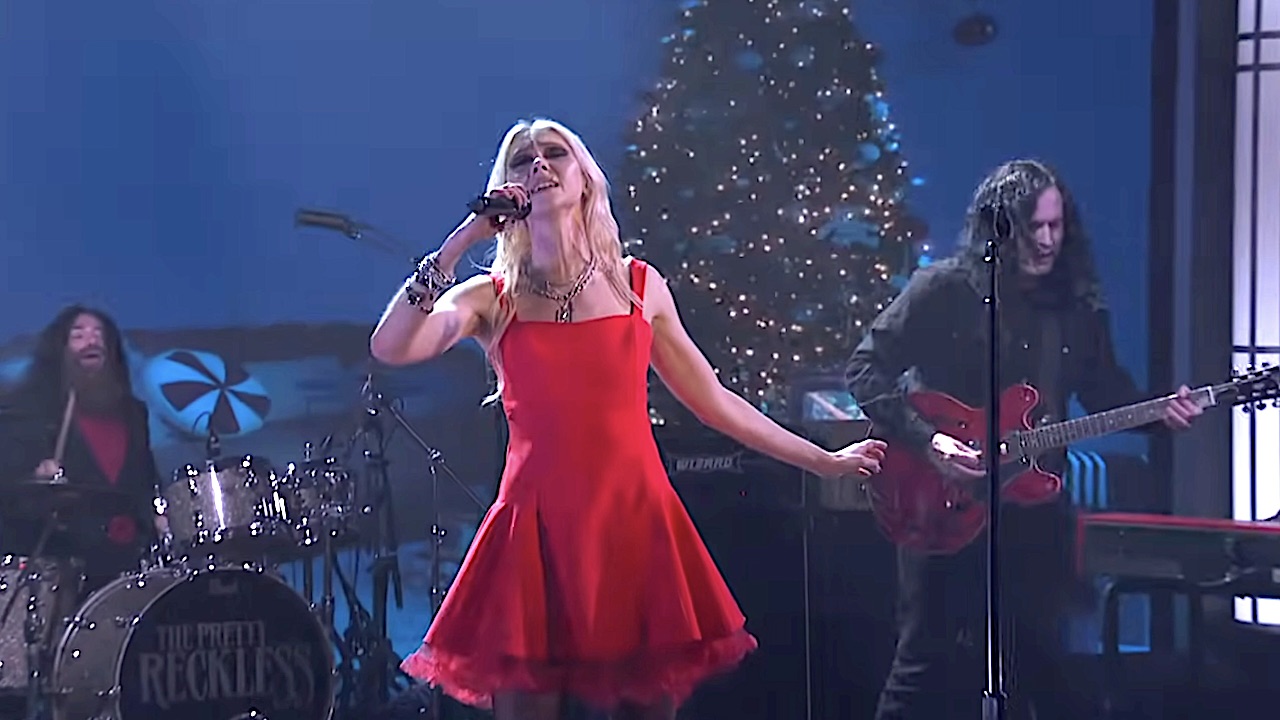Thee Deadtime Philharmonic: “These songs actually mean something..."
Bad lads and idiot villages – meet the working class band whose lyrics are wowing Jarvis Cocker and whose politics are impressing The Clash

In an era dominated by slick media-trained stars and their glossy soundbites, Wayne Murdoch isn’t your average frontman. Hailing from the ex-mining town of Swadlincote, South Derby – a place still reeling from Thatcher’s ruthless interventions – Murdoch is restless and angry, and there’s no chance of him keeping quiet about it.
With his band Thee Deadtime Philharmonic – where he’s joined by Kerry Ann Dunbar on vocals and synth, Derik Tofil on guitar, Mark Knowles on bass and Lee Shaw on drums – Murdoch distils that anger into songs which document the damaging reality that poverty, domestic violence, racism, class structure, police brutality and the demonisation of the working classes have on Britain's psyche. Weaving elements of ska, punk, electronica, soul and jazz into their biting indie rock, Murdoch vocalises stories from forgotten Britain’s murkiest corners in a way few bands currently manage. With debut album Estate Of The Heart, he hopes to offer a voice for those feeling unimportant, unrepresented and left behind.
“I definitely didn't want the album to be like so many records out there – fads and fashions, style over substance, songs about nothing,” Murdoch tells Louder. “These songs actually mean something. It's the stone cold truth; every song on the album is a true story. I write about what I know about, such as my environment and the people in it. A lot of things have stuck with me from growing up – the best songs have some kind of honesty to them.”
The result is an album which bluntly articulates the social landscape in which it was created, and the manifold ways society rewards the better off while punishing those already struggling. “A big motivation [for our music] is how difficult it's been coming from our background to get things off the ground,” says Murdoch. “Everything cost money, from guitar strings to recording. Every gig played and every song recorded we've done off our own back. Even getting funding from the Joe Strummer Foundation For New Music for our first singles was a hustle, while so many successful bands are the product of daddy’s cash.”
The idea that music is dominated by those with a foot already in the door is one of the things that spurred Murdoch to present an authentic account of what life’s really like for Britain’s underrepresented communities. “I think since The Beatles, there’s been this band template of 'working class boys done good' – even though I'd say 90% of guitar bands aren’t working class these days,” he says. “Mick Jagger's talking voice is a prime example – the 'act thick, I know nothing’ way the middle class portray and caricaturise the working class. There’s a lot of class tourism with bands. They all act like they’re from a tower block, but have always got a safety net to fall back on.
“Most doors are closed to people from a working class background because the arts industry isn’t representing us,” he adds. “There aren’t enough of us in it, so it's been left to people who don't understand us.”
With a government seemingly disinterested in – or actively hostile towards, depending who you ask – Britain’s working classes, Murdoch believes it’s more important than ever for these communities to tell their own stories on their own terms. “North of Watford, Britain isn’t represented at all,” he says. “Everyone knows that we can't rely on the government as they can't profit from us anymore, like in the industrial times. With the closing down of community centres, working men's clubs, youth clubs, and even pubs closing down on a massive scale, there doesn't seem to be anywhere that working class people can gather anymore. So I think it's important we try and do these things for ourselves and tell our own stories.”
The latest news, features and interviews direct to your inbox, from the global home of alternative music.
While the social elements of Murdoch’s writing will likely resonate with folks from all over, his specific physical surroundings played a part in shaping the album. “Environment and surrounding are everything to me as a songwriter,” he says. “There's a long tradition in the mining communities of folk songs about events in the areas – stories and people that wouldn't be known, and events that would’ve been forgotten about. I like to think some of my songs are in that tradition, without being in the folk genre. Songs like Maggie's Babies are a good example of that. My mum and dad both worked down the pit – my mum in the canteen, not down the pit! My perspective in that song is that of a kid, not knowing then how the knock-on effect would affect me and my community in the future.”
However, Murdoch is mindful that these stories, and the anger and frustration they inspire, need to be channelled in a positive way. “It is life or death for a lot of people,” he says. “But we have to be careful with the anger, so that we don't give the political elite what they want. It needs to be a channelled into a force for real change. What they want is to point a finger at the ‘rabble’, the underclass, and say "See what they are like? They are violent and uneducated”. Then they’ll lock us up to feed a privatised prison system which funnels money back into the same elite, so they win all round.
“Don't get me wrong, I'm not encouraging picnic protests, as I don't think that achieves anything either,” he counters. “A lot of people say music doesn't change anything, but I know listening to a lot of my favourite artists and bands definitely changed me and my perspective on certain issues. I'm lucky I've got my writing and music as an outlet.”
By channelling his experiences into music, Murdoch hopes to offer wider representation for all those in a similar position – and to reach as many of those people as possible. “We’re going to keep doing what we’re doing our own way, uncompromising and unfiltered,” he says. “The people that we want to hear us are slowly getting to hear us – from the people on the factory floor, to the dole queue, to authors and activists. I performed on Russia Today recently on the programme Going Underground, so it's slowly getting there. Also, people such as Don Letts, Jarvis Cocker and Tom Robinson have played us on their radio shows, which is high praise to us.”
Beyond politics, the band’s main hope is that to reach the disaffected and offer them something different. “I never sat down and thought 'I'm going write a political song’, and I never want to come across as preaching to people,” says Murdoch. “I was just writing about what's going on. The best I can hope for as a writer is that people are moved by the songs and that it changes people's perceptions. I can honestly say I didn't even consider it political until we were touring with Mick Jones from The Clash, who said he liked the political aspect, which made me think about music on a deeper level.
“Everything is political,” he concludes. “You have to stand for something.”
Thee Deadtime Philharmonic's debut album, Estate Of The Heart, is available now.
Briony is the Editor in Chief of Louder and is in charge of sorting out who and what you see covered on the site. She started working with Metal Hammer, Classic Rock and Prog magazines back in 2015 and has been writing about music and entertainment in many guises since 2009. Her favourite-ever interviewee is either Billy Corgan or Kim Deal. She is a big fan of cats, Husker Du and pizza.

